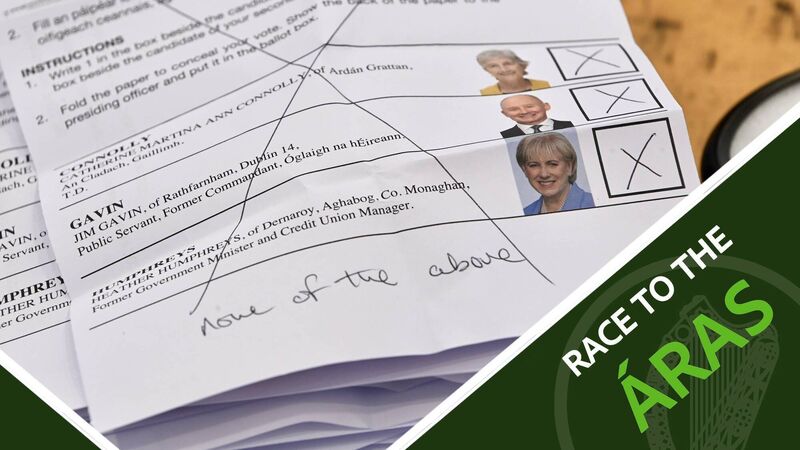Paul Hosford: Impossible to ignore the number of spoiled votes in presidential election

Spoiled votes in the presidential election at Mallow GAA complex. Picture: Larry Cummins
It is not the main storyline, but it will be impossible to ignore the sheer number of people who chose to spoil their votes in Friday's election.
Tens of thousands of people decided that, after a nominations process that produced three candidates, they did not feel represented by anyone who made it onto the ballot.














